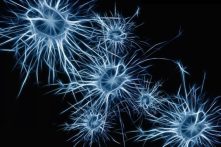 Scientists once believed that the brain was a static organ. Therefore, once it developed, it could not change and could not create new neural pathways or new neurons; brain cells aged and died and were never replaced. So, if someone recovered from brain injury or stroke it was considered that damage to the area was not as extensive as first thought or another area of the brain took over the function. Read ahead for info about healthy brains.
Scientists once believed that the brain was a static organ. Therefore, once it developed, it could not change and could not create new neural pathways or new neurons; brain cells aged and died and were never replaced. So, if someone recovered from brain injury or stroke it was considered that damage to the area was not as extensive as first thought or another area of the brain took over the function. Read ahead for info about healthy brains.
Trauma & Healthy Brains
The reality is the brain has neuroplasticity; it is adaptable and changeable. Thus, the brain is constantly changing and evolving, and constantly creating new neurons. Neuro-plasticity is the reason we can recover from traumatic brain injuries and strokes. Most importantly, the brain has the amazing ability to reorganize, rebuild, and form new connections throughout a person’s life.
Neurons & Healthy Brains
Everyday our brains are growing 700 new neurons in a special brain area called the hippocampus. In addition, the brain births new neurons. The hippocampus improves our ability to learn and remember. Therefore, the more we learn, stay active, and experience things, the more robust and productive our hippocampus becomes. The larger our hippocampus, the more neurons we generate. However, the more sedentary we are and lack of stimulation and experience we have, the more our hippocampus shrinks and the fewer new brain cells it produces.
 Not all new neurons mature and become functioning brain cells. The good news is that there is much we can do to support brain health and increase the healthy production of mature neurons. As a result, we have the power to grow our hippocampus, increase neuron production, and help our brain cells grow and thrive by what we eat and what we do.
Not all new neurons mature and become functioning brain cells. The good news is that there is much we can do to support brain health and increase the healthy production of mature neurons. As a result, we have the power to grow our hippocampus, increase neuron production, and help our brain cells grow and thrive by what we eat and what we do.
Lifestyle Impact on the Brain
- The best way to generatehealthy, mature neurons is to exercise. Exercise increases blood flow and oxygen. One study showed that walking one mile a day lowers the risk of Alzheimer’s disease by 48%.
- Critical factors: the right nutrition; plenty of oxygen from healthy blood supply; a molecule called BDNF (Brain Derived Neurotrophic Factor which is produced by special brain cells); and mental stimulation.

- Eat foods rich in Omega-3 fatty acids, which are the building blocks of neurons. Foods rich in Omega-3 fatty acids are deep-water fish such as salmon, and other oily fish such as sardines and herring; avocados, nuts and seeds (walnuts and chia seeds have the most), flax seed oil.Omega-3 fatty acids are also available as DHA and EPA supplements.
- Eat foods rich in anti-oxidants: blueberries, blackberries, cranberries, strawberries, purple and red grapes, pomegranates; citrus fruits and orange and red vegetables; dark leafy vegetables; kale, spinach, broccoli, cilantro, collard greens; dark chocolate (70% or more).

- Eat whole grains: avoid junk food, fast food, processed flour, and sugary cakes and treats.
- Mental stimulation: Learn a new skill, craft, or language, play word games, board games, change up your activity and routine, reduce stress, meditate, and get plenty of sleep.

Negative risk factors that have been associated with a smaller, shrinking hippocampus and reduced neuron growth are stress, anxiety, untreated depression, obesity, uncontrolled diabetes, sedentary lifestyle, eating junk food, and concussions.